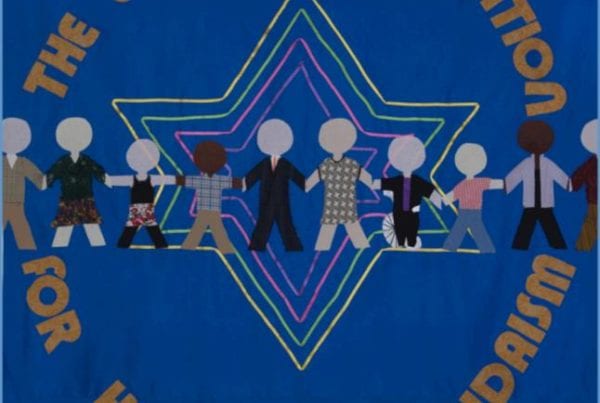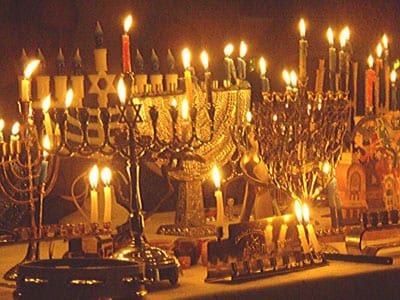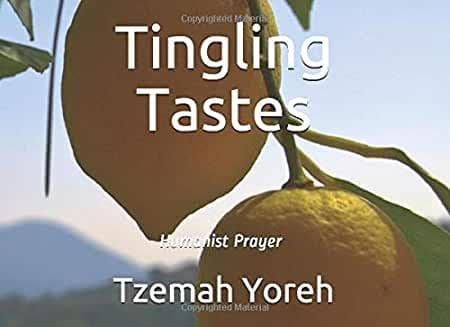Facing the Unexpected
Alyson Silverman-Caruso
Yom Kippur 2018
Hi, I’m Alyson Silverman-Caruso. My family has been a member of City Congregation for three years, I have two sons in the KidSchool and I’m a member of the Board of Directors. One of the things I love about our congregation is the unique ways we get members involved, and these High Holiday talks are an example of that. But when I was asked if I would give a Yom Kippur talk on the topic of “Facing the Unexpected”, I found it to be, well, unexpected.
Every day we’re confronted with things we hadn’t planned for, from small interactions on the subway, to a change that may be life altering. Facing the unexpected is just something that we do in our lives. But what happens when we don’t? What happens when we are confronted with the unexpected, and we close our eyes.
I grew up in a small town in Virginia called Lynchburg, a former Confederate Army hub.
I’m the oldest of three sisters, and along with my parents, we lived a pretty idyllic life, or so I thought. Our town was small and rural: McDonald’s coming to Lynchburg was a cause of great rejoicing. Behind our house a creek flowed, and my sisters and I spent many hours playing there. We had a treehouse that my sister dared me to jump off of. Stupidly I did, and I’ve never taken one of her dares since. We had a dog named Duchess that roamed free like us kids, I had a hamster named Charlene who escaped on a daily basis, and my sisters and I explored the woods and played with Barbies.
My mother was president of the local Hadassah, my father of B’nai B’rith. They were very active in our synagogue in Lynchburg, which was the only synagogue in Lynchburg. It was around the size of The City Congregation, but unlike our community, we were not Jews in an ocean of fellow Jews. Instead we were on a lifeboat.
That’s what it felt like to be Jewish in Lynchburg in the 70’s (especially since Lynchburg in the 70s was still firmly stuck in the 50s). There was no choice of other congregations, and there was very little questioning of what it meant to be a Jew. It was how my parents identified, how they socialized and how they raised us. Like many in their generation, it was “assimilate but don’t cohabitate”. Along with this was a certain pride in being different. Every year during the Christmas holidays my father would fill in for editors at the town newspaper so the non-Jewish employees could be with their families.
Let me pause here and tell you about my father, Norman Harvey Silverman. Norman Harvey? Who would do that to a kid?
My dad was raised in Roanoke, Virginia and was the star of his family. He was the eldest of three siblings and the leader of his many cousins. He was smart, he was funny, and he was always getting into trouble. His mother loved him and spoiled him, but his father sent him to military school when he almost burned their garage down. His Bar Mitzvah was legendary and is still talked about to this day. He went to UVA, but didn’t finish. He married my mom when he was 27 and they moved to Lynchburg which was about 25 minutes from Roanoke where his parents still lived. He was a great poker player and a frequent gambler. He loved football so much that he refereed for a local team. He rooted for the Washington DC team with the inappropriate name, and we’d know whether the team he’d bet on was losing when we heard shouting, accented by the thud of the TV Guide being thrown at the TV. He loved lox and eggs and onions, iced coffee, rhubarb, brisket, corned beef and mint chocolate chip ice cream. He was passionate about pickles so he grew cucumbers in our backyard and dilled them in our basement. In fact, the only food he wouldn’t eat was celery. He laughed a lot, especially at the “Pink Panther” films -he thought Peter Sellers was a genius. (he was right) He had a temper, and I got spanked when I cut my sister’s hair. He had a motorcycle and he smoked cigarettes. I thought his hands smelled like popcorn, but I later realized the smell was nicotine. One of his sisters married a man from Staten Island. We were very close with our cousins, who were also 3 girls, and we’d visit them at least once a year. He hated NYC and thought it was an awful place. (he was wrong). He loved to read. One of his favorite writers was fellow Virginian Edgar Allen Poe. My father gave me a complete edition of Poe’s works and inscribed a note encouraging my love of reading. He helped to write my 6th grade campaign speech when I was running for president.
I adored my dad.
While our family may have seemed solid to me, it apparently wasn’t, and when I was 12 my parents divorced. My dad purchased a cool black van with shag carpeting and took off with his girlfriend on a cross-country trip. Before leaving he put a large map of the United States on the bulletin board in our room and my sisters and I would put push pins into the states he visited so we could track him. That year, I, my sisters and our mom moved to Charleston, West Virginia and after a stint in Colorado, my dad moved back to Lynchburg and married his girlfriend.
My father would come visit us once a month, and we’d spend vacations with him and his wife. Then, after 3 years in W. Va, my mother and her boyfriend thought it was time for us to move to New York. While my father wasn’t happy about it, he also didn’t fight it.
So that summer before my 11th grade year, my sisters and I went to stay with our father in Lynchburg for a few weeks while our mom packed the house. And we hung out with our dad. We played board games and he taught me how to drive, since I’d be turning 16 in a few weeks. Other than those few snippets, I don’t remember a lot about those weeks.
On July 14th my father died. He was 44 years old. It was unexpected.
You know how scientists have discovered reverberations from the Big Bang rippling through the universe? Echoing through me is the unexpected event that reconfigured my very being and caused time to stop for me.
Time stopped in the bedroom, where my dad had suddenly gone to lay down because he didn’t feel well. And I went and put a wet washcloth on his forehead. When his wife came in and asked if she should call an ambulance and he said “yes”, I got worried. I sat and stayed with him and we talked until he lost consciousness and the medics came and tried to revive him but they couldn’t.
Time stopped as I observed that my body was in the car following the ambulance to the hospital, but in my mind I was still in that room with my father. Even in the emergency room, even at the funeral, and even as the loss began to sink in, a part of me remained in the room. The days passed, travelling further from that point in time. I dreaded when the new year came, leaving us further behind. While I stayed, the decades passed, and eventually, the century.
Seeing someone you love suddenly die is both unreal, and the realest thing you can witness. Compared to that, most things became for me paradoxically unimportant and incredibly precious. The demarcation between my dad being there one moment, and then ceasing to be in the following moment, was shocking. After experiencing that line of demarcation firsthand it’s been a challenge to take anything seriously, including myself.
In many ways, I realize that I’ve subconsciously been trying to make time stop since then. I don’t comprehend the future because I’m busy trying to tie down the balloons of time that are always just out of my grasp. And part of me has remained in the room because I don’t want to leave, I want to hold on.
You see, this is mine.
For better and for worse, this event, and how I’ve experienced it, has shaped who I am.
And this is why I had not planned to share this story for a talk on facing the unexpected. Part of me believes that if I were to truly face this moment, I would move beyond it, and I would lose it.
Leaving that room feels like a betrayal and an abandonment of my father. It also feels like I’m giving up something essential about myself that I hold tight.
When my father passed away that July, we were in the process of moving from West Virginia to New York. No one at our new schools knew what had happened. The hometown of Lynchburg we’d lived in the longest, and which was still my father’s home, we’d been uprooted from four years earlier. While my family mourned, we were also adrift, and as a 15 year old it was easier to just keep it to myself as I dealt with the immediate concerns of entering a new high school. The more time that’s passed, the harder sharing this story has become.
And so finding myself up here now, telling it to you, is something I had not expected. But I am doing it because like my parents before me I have found my community. Theirs was the only congregation in Lynchburg, Va, where Jews stuck together because they were probably only two generations removed from the shtetls, and mine is a community within one of the largest populations of Jews in the world and yet the only congregation I feel fits my family.
You are the place I’ve chosen, and that’s chosen me, to share this story. You are the friends and acquaintances and strangers who, simply by listening to this, will help me face something unexpected that happened to me when I was fifteen, and has been happening without stop ever since. Because sometimes it takes decades to find the right time and place to confront it.
I wonder what my dad would think about this moment. If anything, he’d appreciate the irony of our story landing here in the heart of New York City.
I know you didn’t sign up for this. You heard that there would be a reading about facing the unexpected, and you thought that someone would stand up here and talk to you about how to do that and instead you had to be a part of it with me. That was unexpected. But we’re all facing it together, and I thank you for giving me the opportunity to do so.



